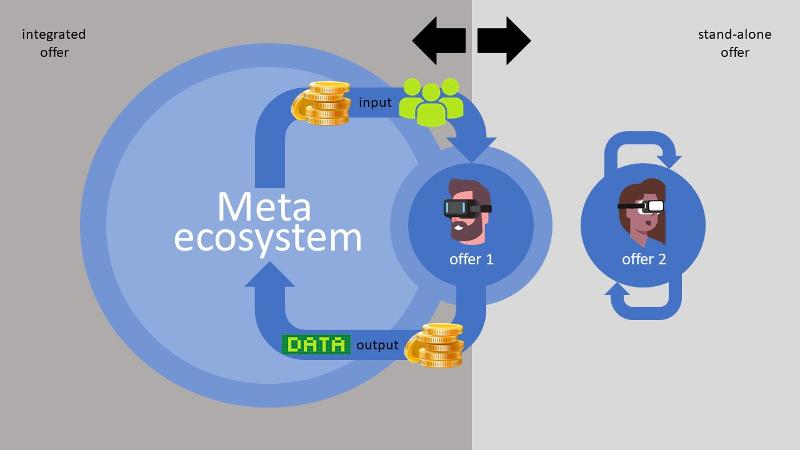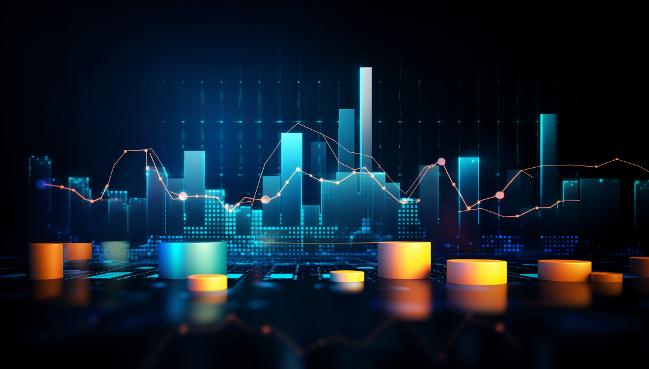Proceedings against Meta/Facebook

In addition to the social network Facebook, Meta also operates Instagram and WhatsApp. Meta’s services are used by over 3.5 billion people worldwide, including a large section of the population in Germany. As a major project for the future Meta also invests in hardware and software for a “metaverse”, that is an extensive virtual 3D world. To this end, Meta has acquired VR headset and technology manufacturer Oculus (now: Meta Quest). Due to its large user base, Meta can access a large set of data and it is also the leading provider of social media advertising. Social media advertising is the company’s almost exclusive source of revenue.
In May 2022 the Bundeskartellamt reached the conclusion that Meta is of paramount significance for competition across markets. This means that Meta falls under the extended abuse control provisions of Section 19a GWB (see press release of 4 May 2022).
Facebook: Bundeskartellamt prohibits the combination of data
In 2019 the Bundeskartellamt had already prohibited Facebook from combining user data from different sources without the user’s voluntary consent under traditional abuse control rules. This imposed far-reaching restrictions on Facebook’s processing of user data. In the Bundeskartellamt’s view, Facebook had violated the prohibition to abuse its dominant position by making the use of its social network conditional on the unlimited collection of any kind of user data from third-party sources and their combination with the users’ Facebook accounts (including Instagram and WhatsApp, which belong to the Facebook group, as well as third-party websites and apps).
The Bundeskartellamt holds that as a dominant company in the German market for social networks, Facebook cannot reserve such far-reaching processing rights without the voluntary consent of users. The authority does not deem consent to be voluntary if access to the social network is conditional on the users’ consent. In its decision rendered in 2019, which attracted worldwide attention, the Bundeskartellamt prohibited Facebook from engaging in such practices (see press release of 7 February 2019).
Facebook proceeding concluded
After Meta (formerly Facebook) appealed against the Bundeskartellamt’s decision in 2019, the case was referred to the Düsseldorf Higher Regional Court (OLG Düsseldorf). The court ordered the suspensive effect of the appeal at Meta’s request on 26 August 2019. On 23 June 2020 the Federal Court of Justice (BGH) overturned this decision at the Bundeskartellamt’s request and denied Meta’s request to order the suspensive effect of its appeal. On 24 March 2021 the Düsseldorf Higher Regional Court referred certain questions to the Court of Justice of the European Union (CJEU) and stayed the proceeding pending the CJEU’s decision. Among other things, the CJEU was supposed to clarify whether the Bundeskartellamt can also apply GDPR provisions when weighing interests in decisions under competition law. The European Court of Justice ruled in favour of this in its decision of 4 July 2023 (case C-252/21).
In the course of the legal proceedings, which lasted several years and in which the Federal Court of Justice (2020) and the Court of Justice of the European Union (2023) confirmed the Bundeskartellamt’s position on matters of principle, Meta and the Bundeskartellamt also intensively negotiated concrete measures to implement the authority’s decision. In October 2024 the Bundeskartellamt found Meta’s individual measures to be a sufficiently effective package to allow the Bundeskartellamt to close the case. Meta for its part has withdrawn the appeal pending before the Düsseldorf Higher Regional Court against the Bundeskartellamt’s decision. The decision is thus final.
See press release of 10 October 2024.
Meta introduces new accounts centre
Although the original decision remained pending before the court, the Bundeskartellamt continued to discuss the implementation of its decision with Meta. Meta then introduced an accounts centre and adjusted its data infrastructure. This accounts centre allowed users to decide for themselves whether they wanted to link their accounts with Meta (on Facebook or Instagram, for example), with the result that Meta could also use the data combined across accounts to create advertising profiles and display personalised advertising. After various adjustments and discussions with the Bundeskartellamt over a longer period of time, the new accounts centre introduced in the course of 2023 can be regarded as enabling users for the first time to make a largely free and informed decision with regard to the use of their data (although there is still room for improvement when it comes to the details): users can either use all services separately with all major functions or they can decide to use additional functionalities across accounts, which involves sharing more personal data.
The assessment that Meta’s account centre allows users to make a largely free and informed choice is based on the standards developed in the 2019 Facebook decision. Therefore, it cannot be ruled out that other legislation, in particular Section 19a of the German Competition Act or the provisions of the Digital Markets Act, may set stricter standards. It should also be noted that the assessment of Meta’s accounts centre cannot be readily applied to other situations in which users make choices, because the implications and the overall context of the respective user decision have to be taken into account in each case.
See also the relevant press release of 7 June 2023
Download case summary
Linking VR headsets to Facebook
In late 2020 the Bundeskartellamt initiated a proceeding against Meta for linking the use of Meta Quest 2 virtual reality headsets (formerly Oculus) to a Facebook account. In early 2021, immediately after Section 19a GWB was introduced, the authority expanded the proceeding to include the new provision. Meta reacted to the Bundeskartellamt’s proceeding: VR headsets (including the Quest 2 headset and the new Quest Pro headset) can now also be used without a Facebook or Instagram account. The relevant press release of 28 January 2021 is available here.
VR headsets in the Meta ecosystem

With its digital ecosystem, Meta is not only the key player when it comes to social media but also has a significant position in the growing VR market. The integration of new services, which benefits both the integrated service and the rest of the ecosystem, makes it possible to tie users more closely to the ecosystem. This can raise barriers to market entry for competitors who are then largely left to compete at the margins of the ecosystem. Competition could be severely impeded in both sectors if only Facebook or Instagram members were able to use the VR headsets. Users must therefore be given the option of using the VR headsets without a Facebook or Instagram account.



